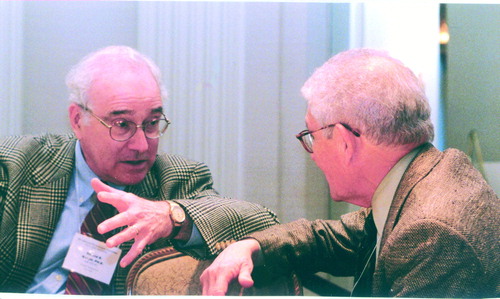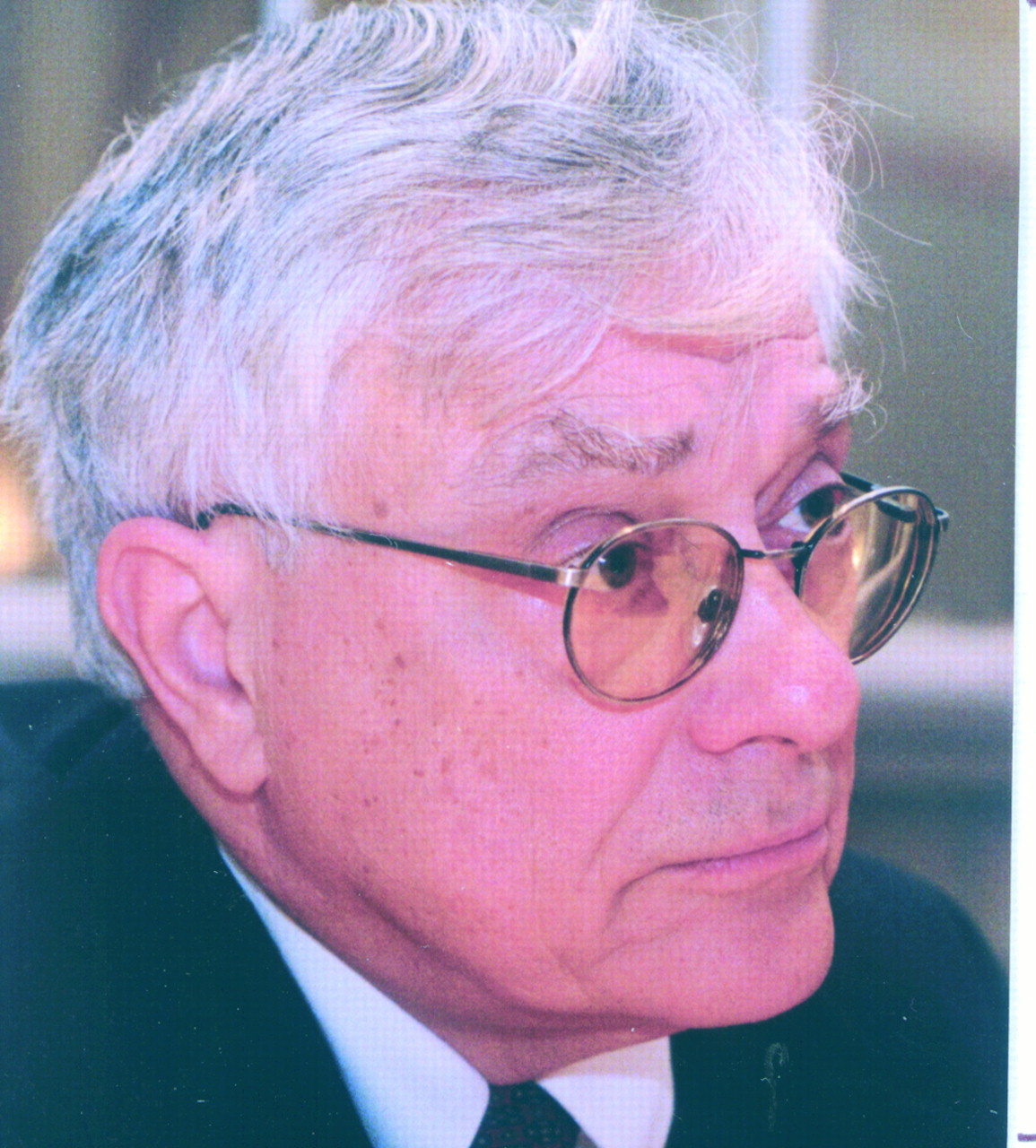You Can’t Take Freud Out Of Vienna—Or Can You?
 At the New York Psychoanalytic Institute on Manhattan’s Upper East Side, one can view rarely seen film footage of that world-famous Father of Psychoanalysis, Sigmund Freud.
At the New York Psychoanalytic Institute on Manhattan’s Upper East Side, one can view rarely seen film footage of that world-famous Father of Psychoanalysis, Sigmund Freud.
For instance, one piece of footage was shot in Potsleinsdorf, Austria, in 1931, when Freud was 75 years old. There he is, with his high forehead, rimless glasses, and white beard, reclining in a lawn chair and wearing a tweed suit. His chow dog Jofi is lying faithfully by his side.
One can’t help wondering, when looking at this frame, what Freud was thinking when it was taken. Was he pondering dreams? The human unconsciousness? Or was he perhaps reminiscing about Vienna, the city where he had lived since age 4 and where he had studied, practiced neurology, and developed ground-breaking concepts about the human mind, mental illnesses, and ways to combat those ills?
In fact, how much was Freud shaped by Vienna? This fascinating question was tackled by historians who were invited to the December meeting of the American Psychoanalytic Association in New York City. They shared their thoughts and opinions at a session called “Freud’s Vienna Fin-de-Siècle—Innovation and Turmoil in Its Art, Culture, and Politics.”
Freud was born in 1856 in Moravia, which was then a province of Austria and now a region of the Czech Republic. His father, Jacob, was a not especially successful wool merchant. The Freuds then moved to Leipzig, where they stayed until Sigmund was 3 years old. Then they moved to Vienna, where Sigmund remained until 1938, when he was 82 years old. That year he fled to London to escape the Nazis and died the following year.

Peter Loewenberg Ph.D.: “You cannot rip Freud out of Vienna!”
Certainly late 19th century Vienna was a fertile world culturally. For instance, as Morris Peltz, M.D., a San Francisco psychoanalyst and chair of this session, pointed out, Vienna at this time was home to composer Johannes Brahms and avant garde artists and contained salons that were havens for the intellectually inclined.
Nonetheless, Freud seems to have been mostly immersed in his own professional world at this point. Commented Peter Gay, Ph.D., a professor emeritus of history at Yale University and author of what is considered to be one of the best biographies of Freud, Freud’s Vienna was “medical Vienna,” his world was psychoanalysis, and his correspondents were psychoanalysts in many places besides Vienna. In essence, Gay said, Freud was a cosmopolitan who resided largely in the scientific domain of the late 19th-early 20th centuries.
Donald Kuspit, Ph.D., a professor of art history at the State University of New York at Stony Brook, concurred: Freud may have been a scientific big shot, but he was rather provincial about art. He also was largely indifferent to music, according to Julie Jaffee Nagel, Ph.D., a clinical psychologist and musician from Ann Arbor, Mich. She said that she found this fact rather curious since psychoanalysis is so verbal.
Still, Freud does appear to have participated, at least from time to time, in Vienna’s larger culture. For example, Gay said, Freud enjoyed smoking cigars, although not Viennese ones; visited coffeehouses, usually with his children; and occasionally went to the opera—and returned home to sing, usually off key, songs that he had heard.
It is also likely that certain Viennese cultural factors influenced him indirectly as well. For instance, the Viennese composer Arthur Schoenberg was responsible, according to Nagel, for “the emancipation of dissonance”—a shocking development in the music world of that time. Although Freud probably did not know Schoenberg personally, Nagel said, Schoenberg’s music reflects a “free association” that also can be found in Freud’s “free association” of ideas. Might the “free association” in Schoenberg’s music have influenced Freud’s concept of “free association”? Nagel implied that it is possible.
Similarly, Freud must have seen at some point the highly erotic, hotly controversial paintings that Viennese artist Gustav Klimdt painted around 1900, Kuspit said. And Freud was undoubtedly influenced by the unfettered sexuality in these paintings, Kuspit suspects, since sexuality and morality were two of Freud’s professional preoccupations. In fact, Kuspit asserted, Viennese art during the first decade of the 20th century was so “toxic with sexuality” that it would have been nearly impossible for Freud to ignore it.
But perhaps the most intriguing question is, Would Freud have become such an intellectual giant if he had not lived in Vienna?
Certainly Freud benefited from the liberal atmosphere that prevailed in Vienna during the late 19th century, Gay conceded. Nonetheless, he argued, “We have good evidence that Freud was ambivalent about Vienna,” and Freud still would have become a gargantuan thinker if he had lived in some European city other than Vienna. After all, Munich had its own cultural milieu at that time. So did Dresden.
Loewenberg, however, disagreed. One of his reasons is that when Freud lived in Vienna, it contained not only Germanic but Eastern European and Greek influences as well, and that Freud appreciated those influences, he said.
“You cannot rip Freud out of Vienna!” he exclaimed. ▪



